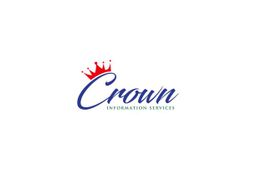
Legal Notice
Crown Information Services
“I am not an attorney licensed to practice law in this state. I am not allowed to draft legal records, give advice on legal matters, including immigration, or charge a fee for those activities.”
As a notary public, I am prohibited from giving legal advice. The question most often asked, though, is: What exactly is considered legal advice? The answer is, “More than you would think.”
THE FOLLOWING PROHIBITED ACTS ARE EXAMPLES OF GIVING LEGAL ADVICE:
Giving advice or your opinion on a document or transaction
This may seem obvious: giving legal advice is an example of giving legal advice. The thing that most notaries overlook is that giving their opinion on the document or transaction that is occurring is also considered giving legal advice, whether those were their intentions or not.
Assisting in the drafting or preparing of a legal document
While you may notarize numerous legal documents during your commission as a notary public, that does not grant you authority to draft them. Legal documents, to hold up in a court of law, should always be prepared by an attorney.
Explaining the document or consequences of signing the document
Any questions the signer has in regard to the document being notarized should be directed at an attorney or the drafting party. As a notary, you are not authorized to read and subsequently explain the document to the signer if they are unclear as to its contents.
Telling the client the best way to execute the document and which notarial act should be performed
Notary Information
What is a notary public?
A notary public is a person licensed or commissioned by a state government. In Minnesota, the Secretary of State licenses notaries public.
What does a notary do?
A notary public verifies your identity and witnesses your signature on important documents. The most common function of a notary public is to prevent fraud.
What does it mean to have an application notarized?
You present your government-issued photo identification to the notary. The notary verifies your identification and watches you sign and date the application. Then, the notary marks the application with a stamp (or a "seal") and signs the application. The notary’s signature and stamp show that your signature matches your photo ID, and that you signed the application willingly. A notarized application helps vital records offices know that your signature is valid.
Notaries are not responsible for the accuracy of the information you put on your application.
Contact details
Tammi Washington
716 County Road 10 NE #133 Blaine, MN 55434
612-298-3215
Notary Commission No. 1028424800038
Closing Agent License No. 40713292
We need your consent to load the translations
We use a third-party service to translate the website content that may collect data about your activity. Please review the details and accept the service to view the translations.
